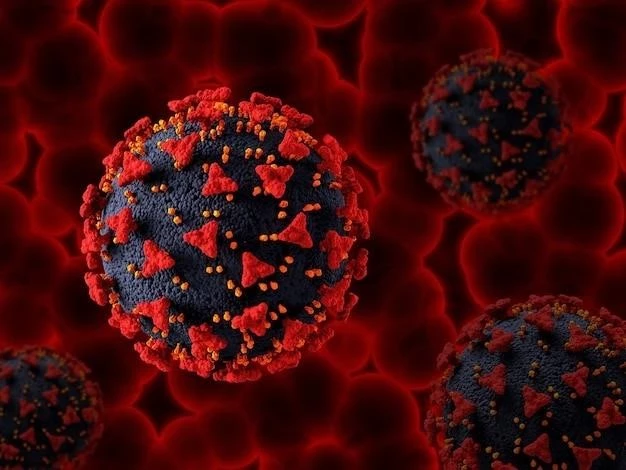Article Plan⁚ Nilotinib for Chronic Myeloid Leukemia
When taking Nilotinib, be cautious with other medications that may interact negatively. Always consult your doctor to avoid complications.
Interactions of Nilotinib with Other Drugs
It’s crucial to be aware of potential drug interactions while taking Nilotinib for Chronic Myeloid Leukemia. Here are some common interactions⁚
- Strong CYP3A4 Inhibitors⁚ Combining Nilotinib with drugs like ketoconazole٫ itraconazole٫ or ritonavir can increase Nilotinib levels٫ leading to toxicity.
- Strong CYP3A4 Inducers⁚ Medications such as rifampin or carbamazepine may decrease Nilotinib levels, reducing its effectiveness.
- Antacids⁚ Avoid taking Nilotinib with antacids containing aluminum, calcium, magnesium, or iron as they can reduce Nilotinib absorption.
- Proton Pump Inhibitors (PPIs)⁚ Drugs like omeprazole may also reduce Nilotinib levels, impacting its efficacy.
- QT Prolonging Drugs⁚ Combining Nilotinib with medications that prolong the QT interval, such as certain antibiotics or antidepressants, can increase the risk of heart arrhythmias.
Always inform your healthcare provider about all the medications, supplements, or herbal products you are taking before starting Nilotinib to avoid adverse reactions.
Common Side Effects of Nilotinib
While Nilotinib is effective in treating Chronic Myeloid Leukemia, it may cause some common side effects. Here are the typical reactions you might experience⁚
- Nausea and Vomiting⁚ These gastrointestinal symptoms can occur but are usually mild and can be managed with medication.
- Fatigue⁚ Feeling tired or weak is common. Adequate rest and gentle exercise can help combat fatigue.
- Headache⁚ Some individuals may experience headaches while taking Nilotinib. Stay hydrated and practice stress-reducing techniques.
- Rash⁚ Skin rashes may develop, and it’s essential to consult your healthcare provider if this occurs.
- Muscle Pain⁚ Nilotinib can sometimes cause muscle discomfort. Inform your doctor if this persists or becomes severe.
- Diarrhea⁚ Changes in bowel habits, such as diarrhea, are possible. Stay hydrated and inform your healthcare provider if it persists.
- Edema (Swelling)⁚ Some individuals may experience swelling in the hands, feet, or ankles. Elevating the affected area can help reduce swelling.
Remember, experiencing side effects is common when taking medications like Nilotinib. If you encounter any of these symptoms, contact your healthcare provider for guidance on managing them effectively.
Serious Side Effects of Nilotinib
While Nilotinib is an important medication for Chronic Myeloid Leukemia, it can also lead to serious side effects that require immediate medical attention. Here are some potential serious reactions⁚
- QT Prolongation⁚ Nilotinib can cause changes in the electrical activity of the heart, leading to potentially dangerous heart rhythm disturbances. Seek medical help if you experience dizziness, fainting, or irregular heartbeat.
- Liver Problems⁚ Rare but severe, liver toxicity can occur. Contact your healthcare provider immediately if you notice yellowing of the skin or eyes, dark urine, or persistent abdominal pain.
- Pancreatitis⁚ Inflammation of the pancreas is a serious side effect. Symptoms include severe abdominal pain, nausea, and vomiting. Immediate medical attention is necessary.
- Bleeding⁚ Nilotinib can increase the risk of bleeding or bruising. Contact your healthcare provider if you experience unexplained bleeding, blood in urine or stool, or easy bruising.
- Heart Problems⁚ In rare cases, Nilotinib may lead to heart failure or other cardiovascular issues. Inform your doctor if you experience chest pain, shortness of breath, or swelling.
- Pulmonary Hypertension⁚ This serious condition can occur with Nilotinib. Seek medical help if you have unexplained shortness of breath, chest pain, or fatigue.
It’s essential to be vigilant for these serious side effects while taking Nilotinib and promptly report any concerning symptoms to your healthcare provider for appropriate management.
Administration and Dosage of Nilotinib
Proper administration and adherence to the prescribed dosage of Nilotinib are crucial for its effectiveness in treating Chronic Myeloid Leukemia. Here are essential guidelines for its use⁚
- Dosage⁚ Nilotinib is typically taken orally, usually once or twice daily. The specific dosage and frequency will be determined by your healthcare provider based on your individual condition.
- Timing⁚ It’s important to take Nilotinib on an empty stomach, at least 1-2 hours before or after a meal. Do not crush٫ chew٫ or break the tablets; swallow them whole with water.
- Compliance⁚ Follow your doctor’s instructions meticulously regarding the timing and dosage of Nilotinib. Missing doses or altering the schedule could affect the treatment outcome.
- Interactions⁚ Avoid consuming grapefruit or grapefruit juice while taking Nilotinib, as it can interact negatively with the medication.
- Adjustments⁚ Your healthcare provider may adjust your Nilotinib dosage based on your response to the treatment and any side effects you may experience. Do not change the dosage without consulting your doctor.
- Refills⁚ Ensure you have an adequate supply of Nilotinib to prevent interruptions in your treatment. Plan ahead and schedule timely refills.

By adhering to the recommended administration and dosage guidelines for Nilotinib, you can optimize its therapeutic benefits and enhance the management of Chronic Myeloid Leukemia.
Precautions and Storage of Nilotinib
While taking Nilotinib for Chronic Myeloid Leukemia, it is essential to observe the following precautions and storage guidelines to ensure the medication’s safety and efficacy⁚
- Pregnancy and Breastfeeding⁚ Inform your healthcare provider if you are pregnant or breastfeeding, as Nilotinib may have adverse effects on the fetus or infant;
- Liver and Kidney Function⁚ Regular monitoring of liver and kidney function tests is necessary during Nilotinib therapy to detect any abnormalities early.
- Driving and Machinery⁚ Nilotinib may cause dizziness or fatigue. Exercise caution while driving or operating machinery until you know how the medication affects you.
- Sun Exposure⁚ Nilotinib can increase sun sensitivity. Use sun protection measures such as sunscreen, hats, and protective clothing to prevent sunburn.
- Storage⁚ Store Nilotinib tablets at room temperature away from moisture and heat. Keep them in their original container and out of reach of children.
- Disposal⁚ Dispose of any expired or unused Nilotinib tablets properly according to your local guidelines or by consulting a pharmacist.
By taking necessary precautions and following appropriate storage practices, you can minimize risks associated with Nilotinib therapy and contribute to a successful treatment outcome for Chronic Myeloid Leukemia.
Conclusion
In conclusion, Nilotinib is a valuable medication for the treatment of Chronic Myeloid Leukemia, but it comes with potential interactions, side effects, and precautions that patients need to be aware of. Understanding how Nilotinib interacts with other drugs, the common and serious side effects it may cause, the proper administration and dosage guidelines, as well as the precautions to take while using and storing the medication, is crucial for a successful treatment journey.
Patients should always communicate openly with their healthcare providers about their medication regimen, any symptoms experienced, and any concerns that arise during Nilotinib therapy. By staying informed, adhering to medical advice, and proactively addressing any issues that may arise, patients can optimize the benefits of Nilotinib while minimizing risks. With proper care, monitoring, and diligence, Nilotinib can play a significant role in managing Chronic Myeloid Leukemia effectively and enhancing overall quality of life for patients.
Remember, each individual may respond differently to Nilotinib, so personalized medical guidance and close monitoring are essential throughout the treatment process. By working collaboratively with healthcare providers and following the recommended protocols, patients can navigate the challenges associated with Nilotinib therapy and strive towards better health outcomes in the management of Chronic Myeloid Leukemia.
